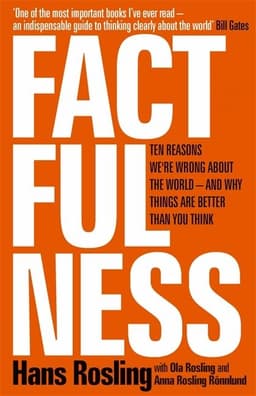
Factulness Book Summary
Ten Reasons We're Wrong About the World – and Why Things Are Better Than You Think
Book by Hans Rosling
Feeling Lazy?Read 1 Minute Summary
Summary
Factfulness by Hans Rosling reveals the ten instincts that distort our perspective on the world, and provides a fact-based framework for understanding global progress and thinking more clearly about the future.
Sign in to rate
Average Rating: 4
The Gap Instinct - The Illusion Of A Divided World
In Chapter 1, Rosling explains the gap instinct - the tendency to divide things into distinct groups with a gap between them, such as rich vs poor countries. In reality, most of the world is in the middle and there is a continuous spread rather than a gap.
- 75% of humanity lives in middle-income countries, not low-income countries as many assume
- There are 4 income levels and most of the world population is on Levels 2-3
- Only 9% still live in low-income Level 1; the rest have electricity, food, education
Section: 1, Chapter: 1
Beware Comparisons Of Extremes And Averages
To control the gap instinct, Rosling recommends:
- Look for the majority. The majority is usually between the extremes, not in the gap.
- Beware comparisons of averages. If you look at spreads instead, the groups likely overlap.
- Beware comparisons of extremes, which are not representative of the groups.
- Beware "the view from up here." A high-level view exaggerates the gaps below.
Section: 1, Chapter: 1
Extreme Poverty Has Halved In The Past 20 Years
Many people still imagine most of the world lives in extreme poverty. However, the data shows the share in extreme poverty has halved in the past 20 years:
- In 1997, 42% of the population of both India and China lived in extreme poverty. By 2017, this was down to 12% in India and under 1% in China.
- Globally, those in extreme poverty fell from 29% in 1997 to 9% in 2017.
- This is one of the "most important changes in the world in my lifetime," says Rosling, but most people are unaware of this incredible progress.
Section: 1, Chapter: 2
Factfulness Means Recognizing The World Is Getting Better
Rosling provides a framework for "factfulness" to recognize that while bad things still happen, the world is getting better:
- Expect bad news. It's more likely to reach you than gradual improvements.
- Good and bad things happen at the same time. Things can be improving overall even if there are still terrible events.
- More bad news does not mean things are getting worse. It may just mean we're paying more attention.
- Gradual change is not newsworthy but is important. Small improvements add up.
- Don't glorify the past. It was likely worse than today in many ways we forget.
Section: 1, Chapter: 2
The UN Predicts The World Population Will Level Off By 2100
Chapter 3 tackles the widespread fear of overpopulation. While the world population is still increasing rapidly by about 1 billion every 13 years, UN projections show it will level off around 10-12 billion by 2100.
- This is because the number of children in the world has stopped increasing. We have reached "peak child."
- The current population growth comes from the last large generation of children, born just before families started shrinking, growing up and having their own children.
- But those children are having just 2 kids on average. After 3 generations of this, the population growth will flatten out.
Section: 1, Chapter: 3
The World Is On Track To End Extreme Poverty By 2030
Rosling uses the analogy of the world as a premature baby in an incubator to argue things are both bad and better: The baby's health is still critical, but on every measure, she is improving. It doesn't mean we should relax, but we should recognize the progress.
Similarly, the world still faces huge challenges with poverty. But the trend lines are all moving in the right direction. If progress continues, extreme poverty could be eliminated by 2030. We are in the last stretch of a 200-year journey from everyone in extreme poverty to almost no one.
Section: 1, Chapter: 3
The Straight Line Instinct Leads To Unfounded Fears Like Overpopulation
The straight line instinct is the tendency to assume a straight line will continue indefinitely. Rosling recommends:
- Don't assume straight lines. Many important trends are S-bends, slides, humps or doubling lines. No child maintains their initial growth rate.
- Curves come in different shapes, so look for the shape of the curve. Zoom out to see which part you are looking at.
- Don't be fooled by averages that seem to show a straight line. Always look for the range in the data too.
Section: 1, Chapter: 3
Our Instinct For Fear Distorts Our Perception Of Risk
In Chapter 4, Rosling discusses how our natural fear instinct makes us overestimate the likelihood of scary events. The media exacerbates this by disproportionately reporting on devastating but uncommon events like plane crashes, murders, and terrorism. As a result, we tend to overestimate the risk of these threats compared to more common but less reported causes of death like diarrhea and road accidents.
For example, the fear of a child being murdered is every parent's worst nightmare. But in reality, in the US, the risk of a child dying from murder is about 0.00016% per year, or 1 in 625,000. The risk of dying in a car accident is 1 in 29,000, over 20 times higher. Yet parents fear kidnapping more than car crashes. Our fear instinct distorts our perception of risk and causes us to worry about the wrong things.
Section: 1, Chapter: 4
Factfulness Is ... Recognizing When Frightening Things Get Our Attention
"Factfulness is ... recognizing when frightening things get our attention, and remembering that these are not necessarily the most risky. Our natural fears of violence, captivity, and contamination make us systematically overestimate these risks."
Section: 1, Chapter: 4
Five Global Risks We Should Worry About Based On Data, Not Fear
While Rosling urges us not to be ruled by irrational fears, he outlines five legitimate global risks we should focus on based on data rather than fear or media attention:
- Global pandemic - A serious worldwide flu outbreak could kill millions as in 1918
- Financial collapse - A major global financial crash could lead to a deep worldwide recession
- World War III - A war between superpowers would be catastrophic and must be avoided at all costs
- Climate change - Continued greenhouse gas emissions will lead to disastrous global warming
- Extreme poverty - Still traps 800 million in misery; solving it enables solving other risks
Section: 1, Chapter: 4
The Size Instinct Makes Us Misjudge The Scale And Importance Of Events
Chapter 5 describes the size instinct - the tendency to misjudge the importance of a single event, number, or person without putting it in context. We focus instinctively on singular cases rather than averages or trends. For example, one dramatic kidnapping gets widespread media coverage and makes parents paranoid, but the actual risk is miniscule compared to more common accidents.
The size instinct also makes us susceptible to lonely numbers. A single large number on its own feels significant, even if it's not put in context. "4.2 million babies died last year" sounds shockingly high. But compared to historical rates, the rate of child mortality has plummeted and that number is actually remarkably low as a percentage of children born.
Section: 1, Chapter: 5
Use Factfulness Techniques To Avoid Misjudging Size And Scale
To keep the size instinct in check and judge numbers accurately, use these factfulness techniques:
- Compare - Put the number in context of another relevant number. Ask if it's big/small compared to what.
- 80/20 - Look for the few largest or most important items that make up 80% of the effect or total. Focus on understanding these first.
- Divide - Consider rates and percentages, not just absolute numbers. Dividing by another key number like population gives a more accurate picture for comparing between different sized groups.
Section: 1, Chapter: 5
The Generalization Instinct Makes Us Wrongly Group Things Together
In Chapter 6, Rosling cautions against the generalization instinct - the tendency to automatically put things into distinct groups and assume the groups are more different than they actually are. We create mental categories like "the developing world" or "African countries" and then exaggerate the differences between the groups, missing the overlaps and variations within them.
For example, many people lump all countries in Africa together and assume they are more different from Western countries than alike. In reality, the differences between African countries are huge, and many have more in common with countries on other continents at similar income levels. There is often more variation within continents than between them.
Section: 1, Chapter: 6
The Pitfalls of Categories
"Categories are absolutely necessary for us to function. They give structure to our thoughts. Imagine if we saw every item and every scenario as truly unique - we would not even have a language to describe the world around us... The necessary and useful instinct to generalize, like all the other instincts in this book, can also distort our worldview. It can make us mistakenly group together things, or people, or countries that are actually very different. It can make us assume everything or everyone in one category is similar. And, maybe most unfortunate of all, it can make us jump to conclusions about a whole category based on a few, or even just one, unusual example."
Section: 1, Chapter: 6
Question Your Categories To Avoid Overgeneralizing
To control the generalization instinct, Rosling recommends questioning your categories:
- Look for differences within groups. Consider how your categories could be split into smaller, more precise subcategories.
- Look for similarities across groups. Consider if the supposed differences between your groups are really that significant.
- Look for differences across groups. Don't assume what is true for one group is true for another.
- Beware of "the majority." Majority just means more than half. Ask if it's 51% or 99%. The two situations are very different.
- Beware of vivid examples. Shocking stories shape our impressions but are often the exception, not the rule.
- Assume people are not idiots. If something looks strange, don't just condemn it. Ask yourself, how could this be rational from another perspective?
Section: 1, Chapter: 6
The Destiny Instinct Leads Us To Assume Innate Characteristics Determine The Future
Chapter 7 discusses the destiny instinct - the tendency to assume that innate characteristics determine the destinies of people, countries, religions, or cultures. It's the idea that the way things are is inevitable and unchangeable because of "natural" traits.
Rosling argues this instinct often reveals itself as a belief that certain places are doomed to eternal poverty or crisis because of their culture. People might say things like "Africa will never develop because of their culture" or claim that certain behaviors are intrinsic to an ethnicity or religion. In reality, Rosling shows with data that these generalizations are simply wrong - cultures and economies everywhere change dramatically over time in response to new conditions.
Section: 1, Chapter: 7
Track Slow Changes To Recognize Gradual Progress
To control the destiny instinct, Rosling recommends looking at slow changes over time:
- Measure from the past. Compare the current situation to 30 or 50 years ago, not just to yesterday. Progress looks small on a daily basis but adds up over decades.
- Talk to your grandparents. What was life like when they were young? You'll likely discover many norms have changed dramatically within a lifetime.
- Collect examples of cultural change. Look for old practices that were once considered permanent but have now disappeared. Foot binding in China and strict social hierarchies in Europe were both once considered "natural" and unchangeable.
- Gradual changes are hard to see in real-time, but examining history reveals very few things are truly static over time.
Section: 1, Chapter: 7
The Single Perspective Instinct Makes Us Focus On Single Causes And Solutions
The single perspective instinct, introduced in Chapter 8, is the tendency to interpret the world through a single lens or paradigm. When we find a simple idea we like, we often try to use it to explain everything. Rosling argues this single-minded focus often leads us astray:
- Proponents of free markets blame all problems on regulations and insist markets alone can solve every issue
- Proponents of aid and equality blame all problems on greed and insist government intervention alone can improve lives
- Experts in one field view everything through their own narrow lens and professional interests In reality, the world is more complex.
Most major challenges have multiple causes and require systematic, multi-pronged solutions. Forcing a single perspective onto every problem oversimplifies reality and inhibits actually solving problems.
Section: 1, Chapter: 8
Beware Of Simple Ideas And Seek Out Multiple Perspectives
To avoid the single perspective instinct, Rosling advises being wary of simple ideas and actively seeking out alternative viewpoints:
- Test your ideas. Don't just look for information that confirms your existing beliefs. Deliberately seek out sources that challenge your preconceptions and could prove you wrong.
- Beware of claiming expertise beyond your field. Acknowledge the limits of your knowledge and don't propose simple solutions to complex problems outside your area of mastery.
- Beware of letting your favorite tool dictate the problem. If you're great at analyzing a particular type of data, be careful not to act like that data alone explains everything. Seek out other tools and perspectives.
- Look at problems in terms of systems, not heroes or villains. Most issues involve complex systems with many interrelated causes. Resist the temptation to make it a simple narrative of good vs evil.
Section: 1, Chapter: 8
The Blame Instinct Leads Us To Condemn Individuals Instead Of Understanding Systems
Chapter 9 focuses on the blame instinct - the tendency to blame individuals or groups for bad outcomes rather than examining the larger system. It feels good psychologically to have a scapegoat, as it makes negative events feel comprehensible and controllable. This instinct often leads us to vastly oversimplify complex issues:
- We blame greedy bankers for the financial crisis, ignoring perverse incentive structures and lack of proper regulations
- We blame immigrants or foreigners for domestic woes, ignoring global economic trends and our own country's policies
- We accuse specific companies of prioritizing profits over people, ignoring the fact that the worst pollution often happens in countries with the weakest institutions and rule of law, not just because of a few unethical corporations
Section: 1, Chapter: 9
Look For Systems And Incentives, Not Heroes And Villains
To keep the blame instinct in check, Rosling advises looking for systemic explanations rather than scapegoats:
- Resist the temptation to find a clear, simple villain. Large-scale problems are rarely caused by a single "bad guy."
- Look for systemic factors that influence people's behavior. What incentives, constraints, and feedback loops are shaping actions? How does the system encourage or discourage certain choices?
- When a negative outcome occurs, go deeper than just blaming the most visible culprit. What enabled their behavior? What other factors contributed to the result?
- Celebrate systems that work. When things go well, give credit to the institutions, incentives, and collaborations that enabled it, not just to heroic individuals.
Section: 1, Chapter: 9
The Urgency Instinct Makes Us Stress And Panic Instead Of Thinking Rationally
Chapter 10 introduces the urgency instinct - the tendency to take drastic action when we feel a sense of pressure or fear, instead of calmly analyzing the situation. In the modern world, most problems are too complex for knee-jerk responses.
Rosling shares a personal story of letting the urgency instinct take over when faced with a potential Ebola outbreak. His key takeaway - take a deep breath when the urgency instinct kicks in. Very few things are true life-or-death emergencies. Calm down, get more information, consider the consequences carefully before acting. Panic and rushed decisions usually make things worse.
Section: 1, Chapter: 10
Controlling The Urgency Instinct To Make Better Decisions
To resist the urgency instinct and make more rational choices:
- Take a breath. When your heart starts racing, stop and think before acting. Very few things are literally now-or-never emergencies.
- Insist on data. If something is truly important and urgent, demand the data to verify it. Is it really increasing/decreasing dramatically? What specifically do the numbers show?
- Beware of fortune-tellers and "now or never" claims. Any prediction about the future is uncertain. Insist on a range of scenarios, not just the best or worst case.
- Be wary of drastic action. What are the side effects and unintended consequences? How has the idea been tested? Small, step-by-step changes are usually more effective than dramatic gestures.
Section: 1, Chapter: 10
The Five Global Risks We Should Worry About, According To Data
While we shouldn't let fear dictate our priorities, Rosling outlines five global threats that the data suggest we should take seriously and work to address:
- Global pandemic - A worldwide disease outbreak could spread rapidly and claim millions of lives in our interconnected world
- Financial collapse - A major worldwide financial crash could cause a severe global recession and throw hundreds of millions back into poverty
- World War III - An armed conflict between superpowers could be catastrophic for humanity in the nuclear age
- Climate change - Continued greenhouse gas emissions will lead to devastating ecological, economic and humanitarian impacts
- Extreme poverty - 800 million people still trapped in extreme poverty, which stifles human potential and progress on other fronts
Section: 1, Chapter: 10
Factfulness In Practice - Having A Calm, Fact-Based Worldview
Rosling reflects on how practicing Factfulness - having a worldview based on facts rather than unconscious instincts - has benefited his life and work:
- Factfulness reduces stress by helping us keep threats in perspective. It's still important to be aware of real dangers but without getting panicked by unlikely or exaggerated fears.
- Factfulness highlights opportunities by showing how the world is changing. Businesses can find growing markets, nonprofits can identify solvable problems.
- Factfulness enables focusing on what's most important by filtering out noise and hysteria. Activists and policymakers can prioritize based on data. In an increasingly complex and uncertain world, Factfulness provides clarity and hope - a needed antidote to paralyzing pessimism and tribalism. By seeing how the world is improving, we can work, step-by-step, towards making it even better.
Section: 1, Chapter: 11
Related Content
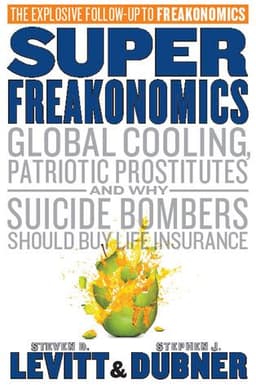
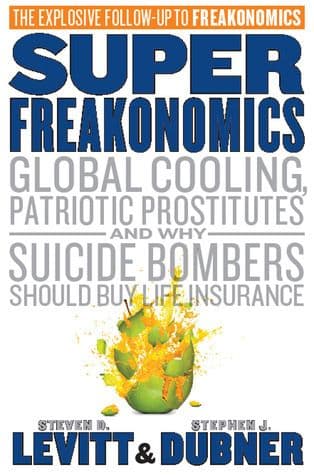
Super Freakonomics Book Summary
Steven D. Levitt , Stephen J. Dubner
In Superfreakonomics, Levitt and Dubner challenge conventional wisdom on topics ranging from prostitution to terrorism to global warming, using data and economic principles to uncover surprising insights and challenge readers to think like a Freak.
In Superfreakonomics, Levitt and Dubner challenge conventional wisdom on topics ranging from prostitution to terrorism to global warming, using data and economic principles to uncover surprising insights and challenge readers to think like a Freak.
Psychology
Sociology
Economics
Incentives
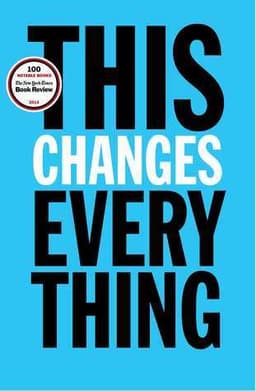
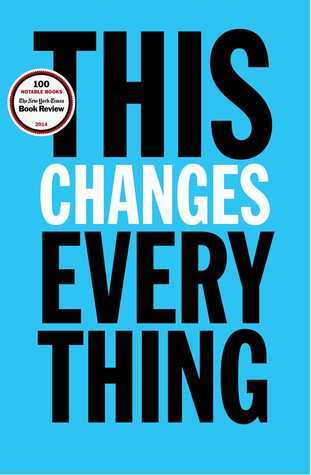
This Changes Everything Book Summary
Naomi Klein
In "This Changes Everything," Naomi Klein argues that the climate crisis challenges us to abandon the core "free market" ideology of our time, restructure the global economy, and remake our political systems - and that in the process, we have the chance to create a safer and more just world.
In "This Changes Everything," Naomi Klein argues that the climate crisis challenges us to abandon the core "free market" ideology of our time, restructure the global economy, and remake our political systems - and that in the process, we have the chance to create a safer and more just world.
Sustainability
Climate Change
Economics
Politics

